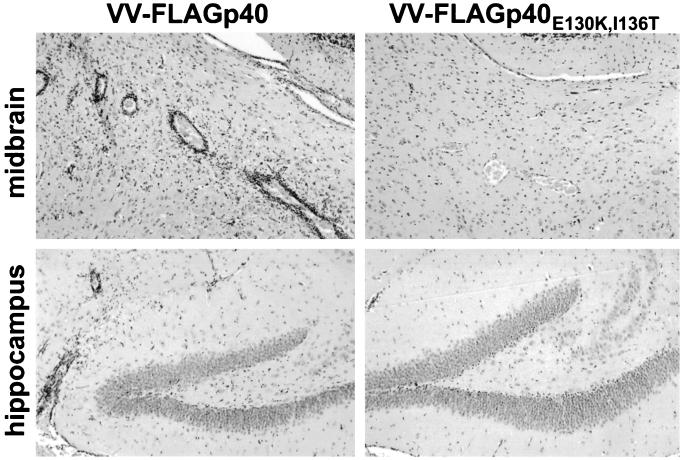FIG. 6.
Vaccinia virus expressing p40, but not mutant FLAGp40E130K,I136T, induces encephalitis in BDV-infected B10.BR mice. Mice were infected with a mouse-adapted variant of BDV as newborns in order to establish a symptomless persistent infection of the CNS. At the age of 8 to 10 weeks, the animals were infected with recombinant vaccinia virus expressing wild-type p40 or mutant protein p40E130K,I136T. The animals were sacrificed when severe neurological symptoms occurred (7 to 10 days after challenge) or at day 10 post vaccinia virus infection if no disease symptoms were observed. Brain hemispheres were removed and processed for paraffin embedding. Thin sections were stained with hematoxylin and eosin to visualize infiltrating lymphocytes in the midbrain (upper panels) and hippocampus (lower panels) of mice infected with VV-FLAGp40 (left panels) or VV-FLAGp40E130K,I136T (right panels).

